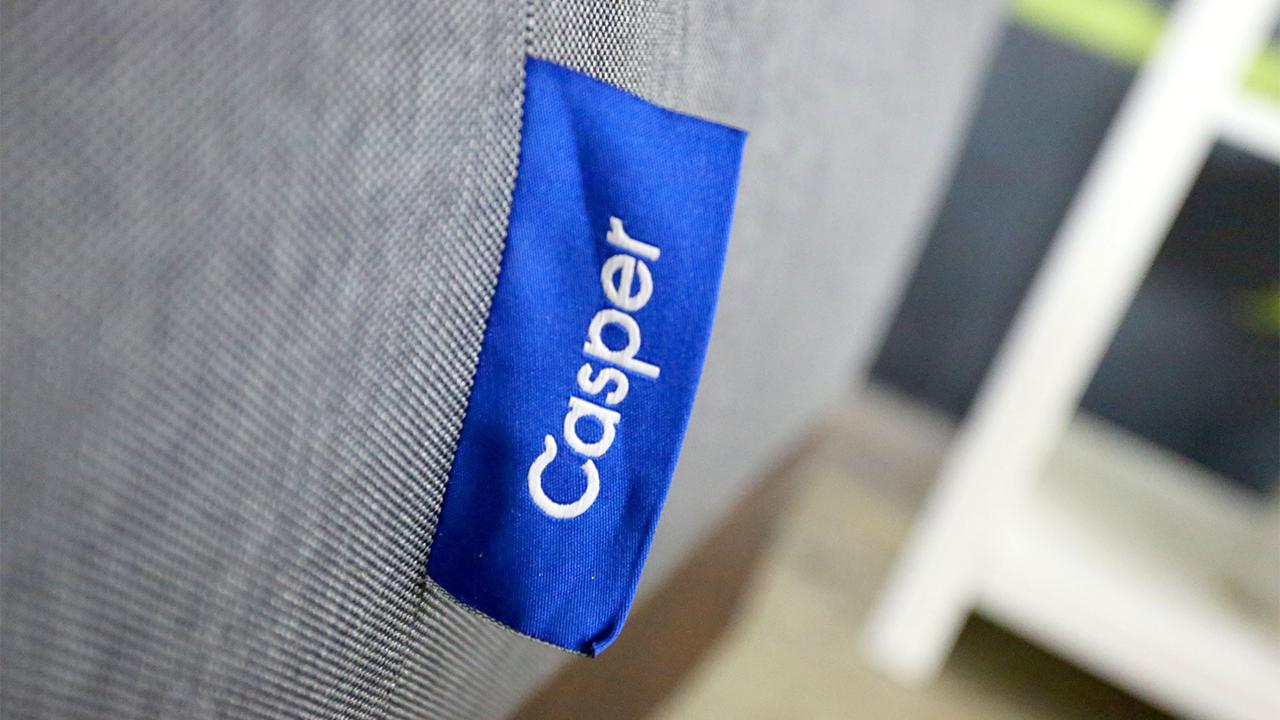Casper leads luxury home market for millennials, inspires competitors
Casper made its New York Stock Exchange debut Thursday
Casper mastered the art of selling to young people, even if it’s unprofitable.
The New York-based mattress company that uses quirky ads to sell its affordable “bed-in-a-box” concept direct to consumers, made its New York Stock Exchange debut Thursday at a valuation of $470 million – half of what was expected a year ago. And home brands Riley, Burrow and Tuft & Needle are following its business model of making sleepy products livelier through savvy marketing.

The New York-based mattress company that uses quirky ads to sell its affordable “bed-in-a-box” concept direct-to-consumers, made its New York Stock Exchange debut Thursday at a valuation of $470 million. (Casper).
Casper woke up the $30 billion mattress industry in 2014, selling beds with a combination of “high-density foams” online and opening up pop-up stores where consumers can test out products. It also went on to sell pillows and sheets at Target, bringing the brand more mainstream with a two-part presence online and in retail stores.
CASPER IPO SPIKES IN TRADING DEBUT
| Ticker | Security | Last | Change | Change % |
|---|---|---|---|---|
| CSPR | NO DATA AVAILABLE | - | - | - |
| TGT | TARGET CORP. | 115.64 | -0.01 | -0.01% |
A number of brands have followed its lead. Bedding company Riley sells Sateen sheets said to have a silk feel with full sets selling for $150, an accessible alternative to the look and feel of more expensive Egyptian cotton, which can cost upward of $250.
Furniture startup Burrow, which has been called the “Casper of couches” and bills itself as “the luxury couch for real-life,” ships its couches in pieces so consumers can snap them together or snap them apart if they ever need to make space. The average price for a three-seater couch is under $1,500 and the company has offered up to 20 percent off with discount codes; to compare, a three-seater couch at West Elm sells for around $1,600.
And Away, another pioneer in the luxury-for-less market with its direct-to-consumer luggage sold in myriad colors including millennial pink, announced last year it raised $100 million in Series D funding, raising the company’s valuation to $1.4 billion. The company earned $12 million in sales in its first year and $150 million in 2018, Retail Dive reported. The funding will help it grow its brick-and-mortar stores and expand internationally.
Industry leaders say brands are increasingly tapping into a young luxury demographic of consumers looking to buy quality products for less.
“The value of a luxury product is not lost on millennials and Gen Z, just the opposite,” Marshal Cohen, chief industry advisor for the NPD Group market research firm, said in a report about redefining luxury.
MATTRESS SELLER CASPER SELLS IPO SHARES AT BOTTOM OF LOWERED RANGE
“The younger luxury consumer demands the quality and cache expected from luxury items, but they also expect the shopping variety that allows them to find something unique.”
“The younger luxury consumer demands the quality and cache expected from luxury items, but they also expect the shopping variety that allows them to find something unique.”
Still, brick-and-mortar bed retailers are still dominating the market. Mattress Firm is the No. 1 retailer with 11 percent of the market share followed by Select Comfort at 4.5 percent, while Casper ranks as the top online retailer with 0.7 percent, according to data from IBISWorld wide as reported by Inc.
GET FOX BUSINESS ON THE GO BY CLICKING HERE
And more competitors are saturating the market, with big brands starting similar direct-to-consumer home brands to rival Casper or simply acquiring them. Longstanding mattress seller Serta Simmons Bedding merged with Tuft & Needle in 2018 while Walmart's Allswell mattress brand has been a big seller for its accessible price point, along with Purple.




















